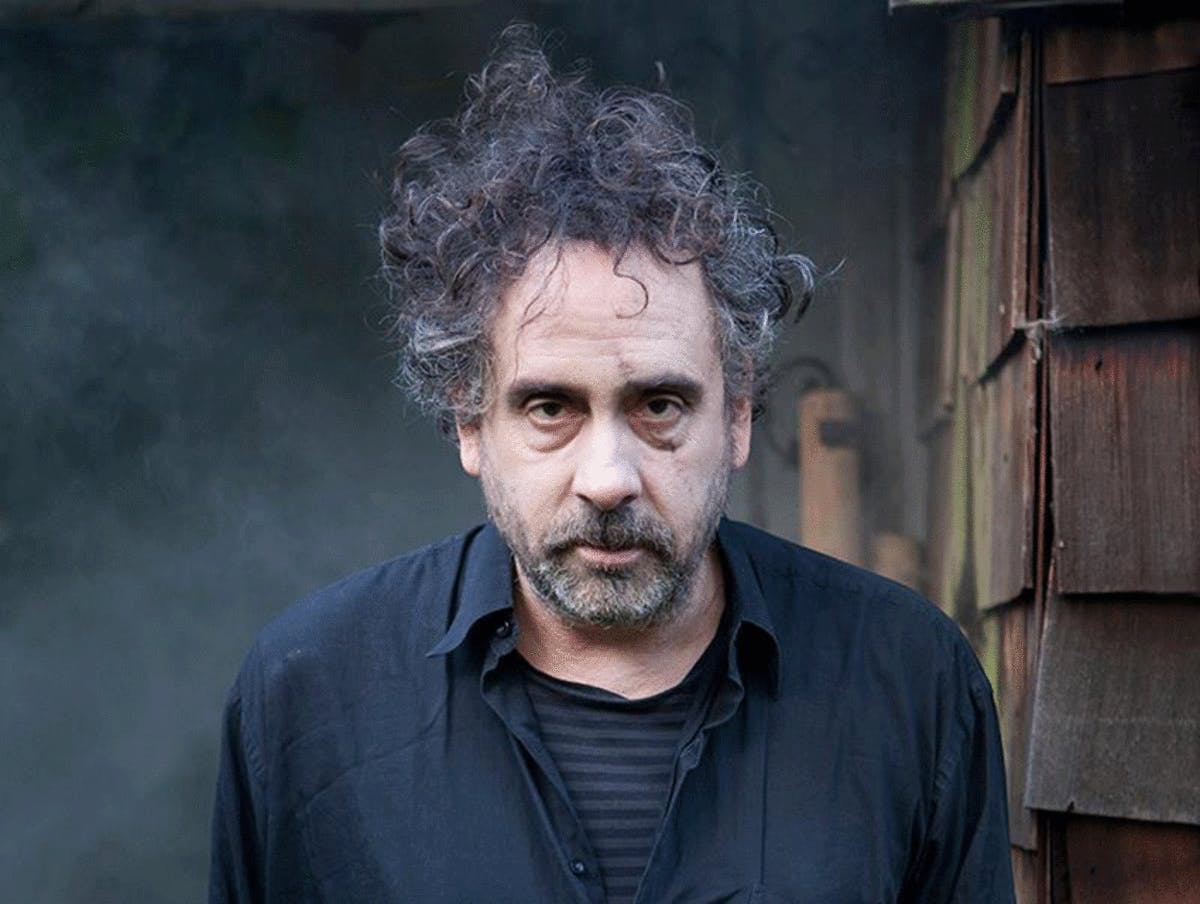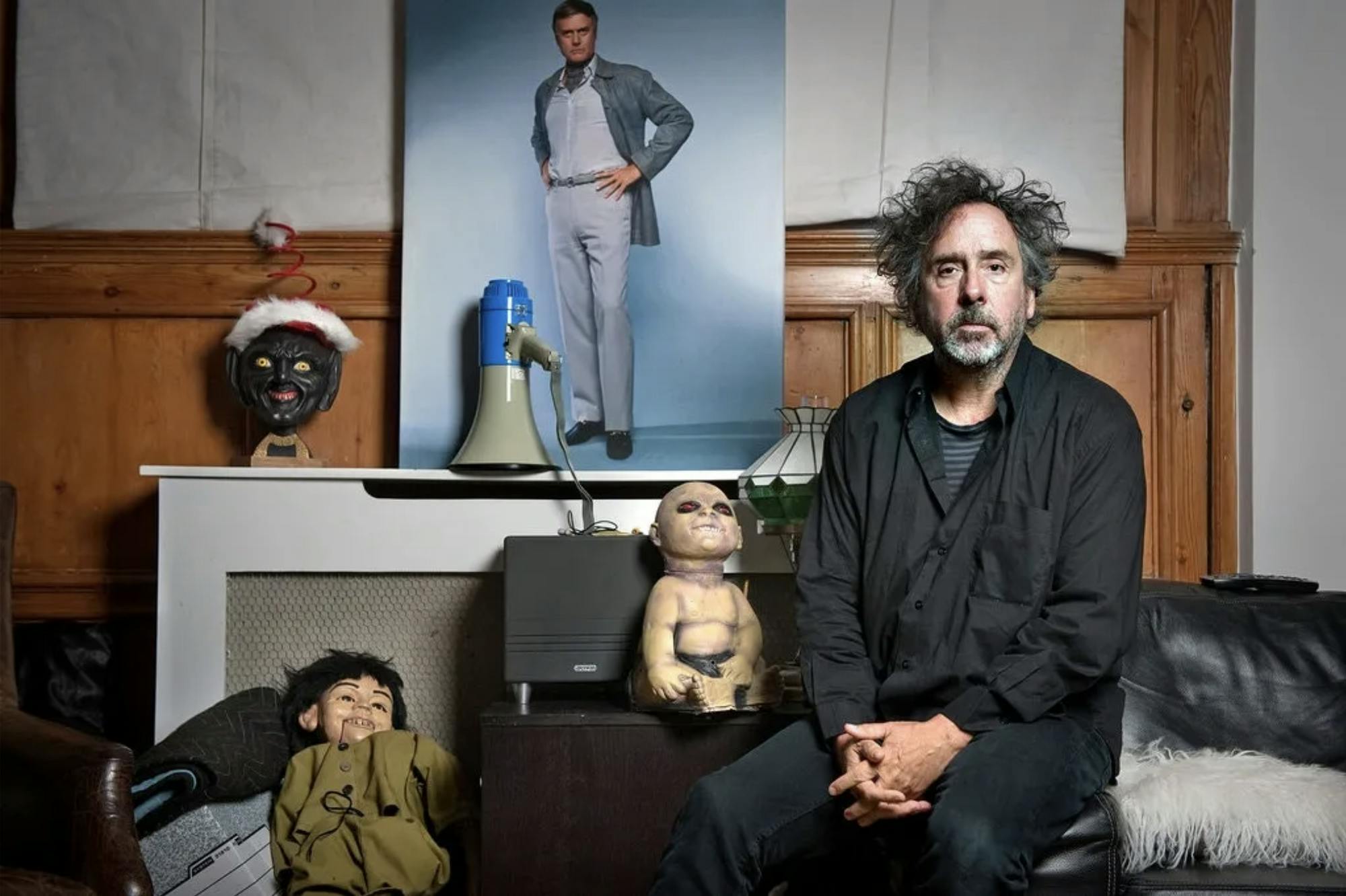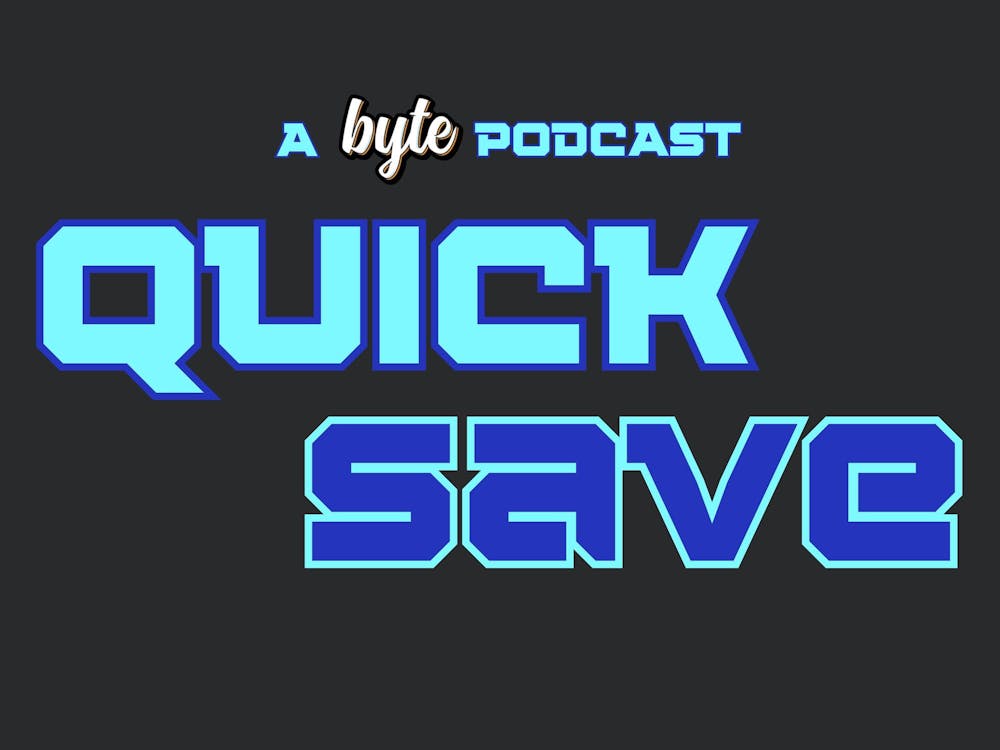Do you hear it? The beating heart thumping beneath the floorboards? Perhaps you hear the tapping upon your chamber door? Of course not. Not here. What you do hear is the swinging jazz tale of a bride’s unfortunate demise, the stomping hooves of a headless horseman, the swing of a deadly razor. Grim, gothic, and oh so Poe-esque. Who better to put the goth in gothic horror than American director Tim Burton?
With the coming fall season came the unexpected and potentially worrisome sequel to cult classic film Beetlejuice, almost 40 years after the original film hit silver screens. Despite hesitation, Beetlejuice Beetlejuice was a hit with critics and the masses. With this success, Burton’s time in the darkness of public consciousness has ended, and perhaps with it comes the end of slowly diminishing films. So with the spotlight, let’s walk through the whimsical, musical, and often dark woods of Tim Burton’s extensive history and repertoire.
Youth and the Beginnings of the Grim

Tim Burton was born Timothy Walter Burton in Burbank, California on Aug. 25, 1958. Living in California, Burton grew up in the suburbs among houses that looked much the same as his own. He hated it. And inside the walls of his home, life wasn’t any kinder. Even to his parents, Burton felt isolated and alone, a black sheep to his surroundings. During this time, Burton found comfort in the genre of monster films, as well as a love of animation, particularly the animation of Ray Harryhausen. Feeling like an outcast and a stranger to the world around him, Burton sought escape through drawing.
After he graduated high school, Burton attended the newly opened visual and performing arts school California Institute of the Arts. However, he did not remain in school to obtain his degree. As one of the earliest students in the Character Animation Program, he obtained an apprenticeship with Walt Disney Productions after the success of his animated short Stalk of the Celery Monster in 1979. Seeing an opportunity, he dropped out of college and began working for Disney, joining their animation team. After working for a few years as animator, storyboard artist and concept artist, he fell out of place creatively. His style of animation did not match what the studio was producing at the time. However, the studio was not oblivious to his animation talents and gave him the freedom to experiment. As such, Burton produced his first short films with the studio: Vincent (1982), Hansel and Gretel (1983) and Frankenweenie (1984). These short films would later lead him to work with Paul Reubens in his first feature film, Pee Wee’s Big Adventure (1985), as well as his departure from Disney studios.
Leaving for Cosmic and Gothic Highs
The release of Pee Wee’s Big Adventure saw surprise success with the critical and commercial audiences, opening the doors for Burton to begin experimenting further. In the films following Pee Wee’s Big Adventure, Burton would start to inject his own artistic vision: gothic, dark, and surreal. The film which would cement this concept of ‘dark and twisted’ would come in his second feature film, Beetlejuice (1988). Again, the movie was a success, and his name as a bright, young and grimly stylistic director was solidified. But only time would tell if his first two films were outliers or signs of promise.
Following Beetlejuice, Burton would be approached by Warner Bros. to direct Batman (1989), adapted from the comic book series of the same name. The film became the film of the year, amassing $400 million in the worldwide box office and $250 million in the domestically. Batman also earned six BAFTA nominations, securing his place in Hollywood, as well as a career-long relationship with musical composer Danny Elfman. His films were taking off, and his name was being uttered around the world.
The shine of his rising fame opened the door for Burton to make the film he wanted. So he did. That film was 1990’s Edward Scissorhands. Not only was the film the beginning of his signature “Burtonesque” style, but it also started a 20-year relationship with 21 Jump Street (1987–1990) star Johnny Depp. The film went on to be a success and is still one of his most esteemed films. Burton was becoming renowned, and he showed no sign of slowing down. He would work on several films at a time—writing, producing and directing—releasing movies seemingly yearly. The string of annual films began in 1992 with Batman Returns, then followed with The Nightmare Before Christmas in 1993 and concluded in 1994 with Ed Wood. Each one was a hit in the box office and often with critics and fans. Burton was reaching the stars, unable to fail.
The Patterns of the Fall
It wasn’t until 1996 when Burton would finally stumble. For the first time, a movie he made—Mars Attacks!—was met with scrutiny by the critics and audiences. While the film could be dismissed as a failed attempt to try something different from the gothic surrealism he was known for, the film was the pause before the fall -- a hesitant breath for something different than what was coming.

Burton’s next film was a return to form for the director. Sleepy Hollow (1999) was a dark and classically Burton-ized retelling of Washington Irving’s story “The Legend of Sleepy Hollow”. The film was a success, and it seemed as though Mars Attacks! truly was simply a fluke in the director’s filmography. Two years later, in 2001, Burton released his remake of Planet of the Apes to financial success, though it was panned by critics. This formula of remaking, retelling, or adapting stories would continue for the rest of his filmography.
This formulaic pattern of retreading what had been done before would come to its peak with 2010’s Alice in Wonderland. After decades of distance from the company and studio which gave him his start, Burton would return to work with Disney once again. And alongside his return was $200 million for him to produce his version of Lewis Carroll’s “Alice’s Adventures in Wonderland.” In making the film, there was less risk and less passion as he simply let the formula do his job for him. While the film was received middling reviews from critics and audiences alike, the film would become his highest grossing to date at over $1.025 billion worldwide. Burton had reached the heights of legends and now simply could ride on his name to bring in audiences.
Burton went on to continue his lifeless and soulless adaptations. Each film slowly received less acclaim and less box office success. It was beginning to look as though Burton would let his career fall and not return to the roots that made him.
The Rites Were Read, Now He Returns
After 2019’s remake of Disney’s Dumbo (1941), it seemed as though Burton had forgotten why he departed from the studio and set out on his own. So when Wednesday (2022–present) was originally announced as an untitled Addams Family project in 2020, fans were hesitant. But with the release of the show in 2022, it seemed as though Burton was finally returning to form. Audiences and critics praised the show, which was just as gothic and artistic as many of Burton’s best works—but the fear still lingered. A single project could not determine the course of Burton's future work.
Then it was announced that he would return to the world of one his earliest and most beloved of his films, Beetlejuice. The skepticism returned. Nearly 40 years since the original film was released, and now a sequel was coming. Questions permeated whether Burton could actually capture the essence of what made the original film so popular. In September 2024, Beetlejuice Beetlejuice was released. The film was another hit for Burton. Critics and fans alike loved it. Though like the titular character of the film, only the third knell of this rising streak will show if Burton has a renaissance on the way. All we can do now is wait.
Sources: IMDb, IMDb, IMDb, Rotten Tomatoes, IMDb, CalArts, Disney Studios, IMDb, IMDb, IMDb, IMDb, IMDb, IMDb, Warner Bros Studio Operations, IMDb, Box Office Mojo, IMDb, IMDb, IMDb, IMDb, IMDb, IMDb, IMDb, IMDb, IMDb, Mount Vernon, Project Gutenberg, IMDb, IMDb, Academy of American Poets, Project Gutenberg, Rotten Tomatoes, Box Office Mojo, IMDb, IMDb, IMDb, Rotten Tomatoes
Photos: Entertainment Junkie Blog, LAmag, Medium
Contact Aaron Picklesimer with comments at ampicklesimer@bsu.edu


















